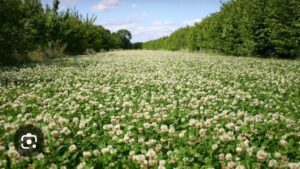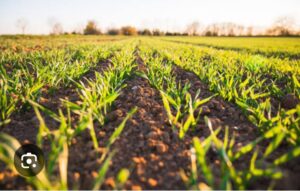

,,,,,,Insights from the Cal-Maji Foundation, Heinrich Böell Foundation, and Partners.
By Dada Ahmed.

Photo credit by Google.
Experts in organic farming and biodiversity conservation, speaking through sophisticated AI language models, have described Kogi State, located in Nigeria’s central region, as a geopolitical entity poised to become a pivotal player in Nigeria’s quest for organic farming and biodiversity conservation.

As global awareness of environmental sustainability intensifies, Kogi’s unique ecological attributes and agricultural potential position it as a promising foundation for launching this significant project.

Zimi organic farming.
Photo credit: Google.
In alignment with this vision, the current administration in Kogi State is exploring the development of the state into a leading hub for organic agriculture and biodiversity, both within Nigeria and beyond its borders in the near future.

Biodiversity in picture. Photo credit: Google.
The government’s commitment to this initiative is grounded in the fact that organic farming promotes soil health, ecological balance, and biodiversity, making it a sustainable alternative to conventional farming. This approach is expected to significantly enhance food production in the state.
Kogi’s diverse landscapes—ranging from rainforests to savannahs—provide a rich canvas for cultivating organic practices. Experts assure that embracing organic agriculture in the state will not only benefit the environment but also enhance food security and improve farmer livelihoods.
Academics in agriculture and environmental studies explain that organic farming involves using natural processes and materials while avoiding synthetic chemicals and fertilizer.
Biodiversity, on the other hand, refers to the variety of life forms within an ecosystem, which is crucial for maintaining ecosystem stability and resilience, according to various literature on the subject matter.
As the state government intensifies efforts to boost food production and security by leveraging its favorable weather and other agricultural advantages, it has found valuable allies and partners to accelerate this crucial agricultural policy.
To illustrate, the Cal-Maji Foundation, in collaboration with its partners at the Heinrich Böell Foundation and other key stakeholders, recently visited Lokoja to train farmers, including women, who are essential to achieving the government’s goals in this area.
During a press conference in Lokoja on Friday, Faith Ayegba, Project Director of the Cal-Maji Foundation, stated that “the time to act is now” if the state government is to realize its objective of making Kogi a hub for organic farming and biodiversity excellence in Nigeria and Africa.
The project director, whose press conference was titled “A Pathway to Becoming the Organic Capital of Nigeria and Africa,” urged the state government to invest in training programs for farmers, extension workers, and agricultural officers to impart the benefits and practices of organic agriculture, agroecology, and agroforestry.
She also called on the state government to collaborate with universities and agricultural institutes to provide ongoing education for advancing this project. Ayegba emphasized that by embracing organic farming and sustainable agriculture, and introducing policies that support and incentivize farmers to adopt organic and agroecological practices, Kogi State could lead in sustainable agroecological and organic practices not just in Nigeria but across Africa.
These policies should include subsidies for organic inputs, tax breaks for organic producers, and support for certification processes, she advised. Ayegba also proposed establishing research centers dedicated to improving organic farming techniques and agroecological practices. She expressed optimism that these centers could become hubs for innovation and knowledge dissemination.
Regarding market access and promotion, she stressed the need for government support in creating local and international markets for organic products from Kogi State. The project director highlighted the importance of engaging local communities in the transition to organic agriculture by raising awareness of its benefits and involving them in decision-making processes to ensure the shift is inclusive and sustainable.
Ayegba, flanked by other stakeholders in organic agriculture, also emphasized the need for public and private sector investment in agroforestry, particularly in encouraging tree planting and integrating trees into farming systems. This would enhance soil health, sequester carbon, and promote biodiversity.
“We urge the state government, private sector, and the people of Kogi State to join hands in this transformative journey. Together, we can build a food-secure future that prioritizes our health, environment, and economic prosperity,” she stated.
Ayegba explained that organic agriculture and agroecology offer multiple benefits beyond increasing food production, including improved soil health, reduced need for chemical fertilizers, and increased resilience to climate change. “These practices lead to healthier food that is free from harmful pesticides and chemicals, thus contributing to the overall well-being of Kogi’s population,” she added.
She noted that food security is an immediate priority, citing rising food scarcity and malnutrition that negatively impact thousands of people. Ayegba expressed concerns about the state’s reliance on chemical inputs and monocultures, arguing that these practices are unsustainable as they degrade soil, reduce biodiversity, and make food systems vulnerable to climate shocks.
In addition to Ayegba’s recommendations, other agricultural experts have urged the state government to prioritize biodiversity conservation projects to protect endangered species, preserve traditional knowledge, and ensure the long-term health of natural systems. Partnerships with conservation organizations can provide expertise and resources for these projects.
On infrastructure development, experts called for improved infrastructure, such as good roads, viable markets, and well-equipped storage facilities, to facilitate the growth of organic agriculture, especially in rural areas. They argue that investments in infrastructure are crucial for supporting the efficient distribution of organic products and reducing post-harvest losses.
Empirical evidence shows that Kogi State, with its rich soil and favorable climatic conditions, has the potential to become a leader in organic farming and biodiversity excellence, not only in Nigeria but across Africa.
Stakeholders believe that the dream of Kogites to transform their state into a viable and lasting organic farming hub is achievable. They emphasize that realizing this dream requires the political will of the state government and active support from allies such as the Cal-Maji Foundation, Heinrich Böell Foundation, partners, and other key stakeholders, as evidenced by recent activities in Lokoja, the capital of Kogi State.
Dada Ahmed, a member of the Nigerian Guild of Editors (NGE), publishes The Reporters.
ahmeddada008@gmail.com


